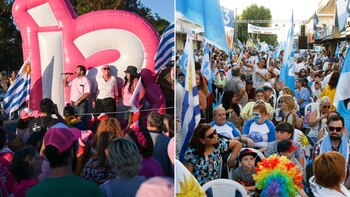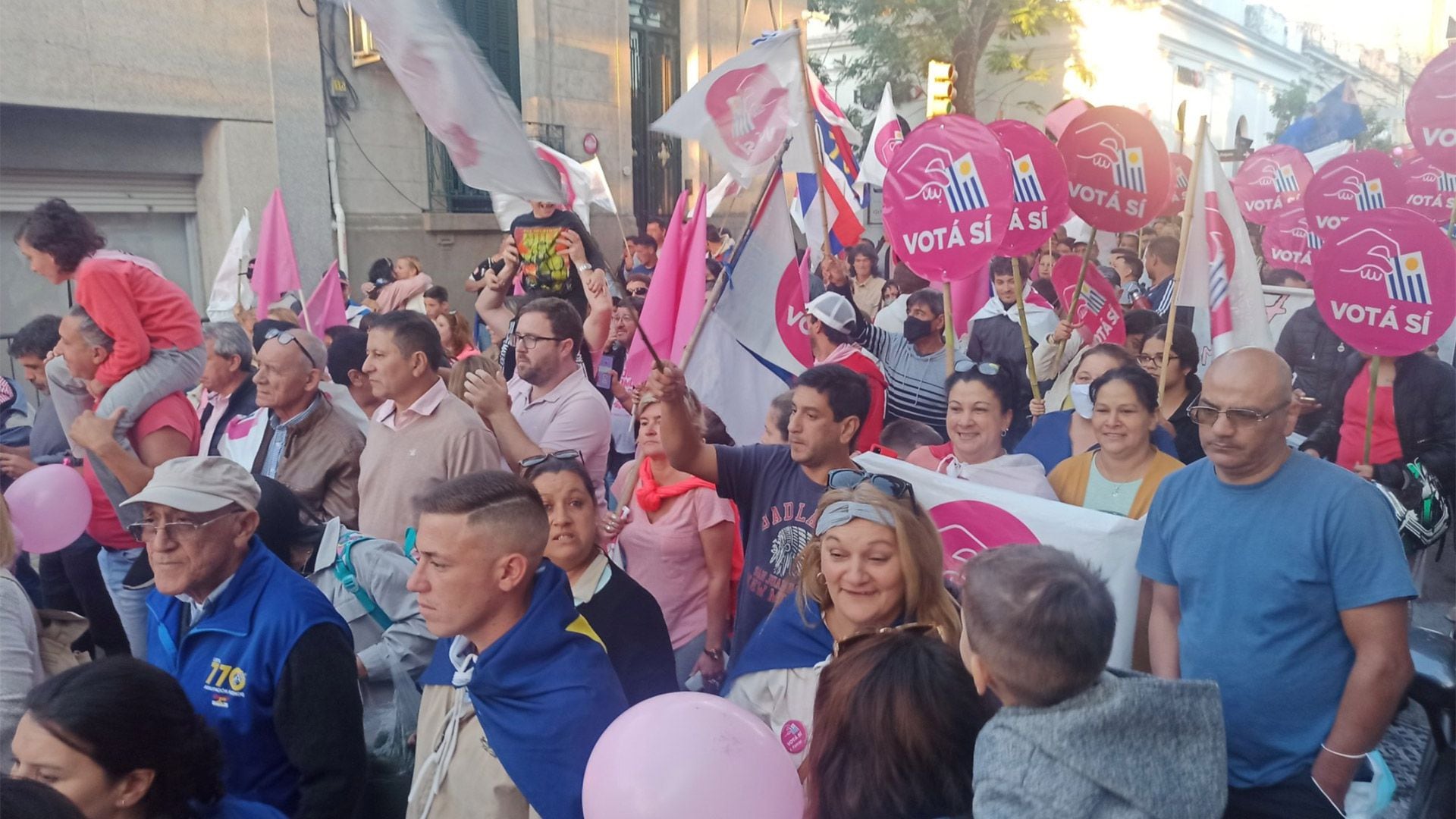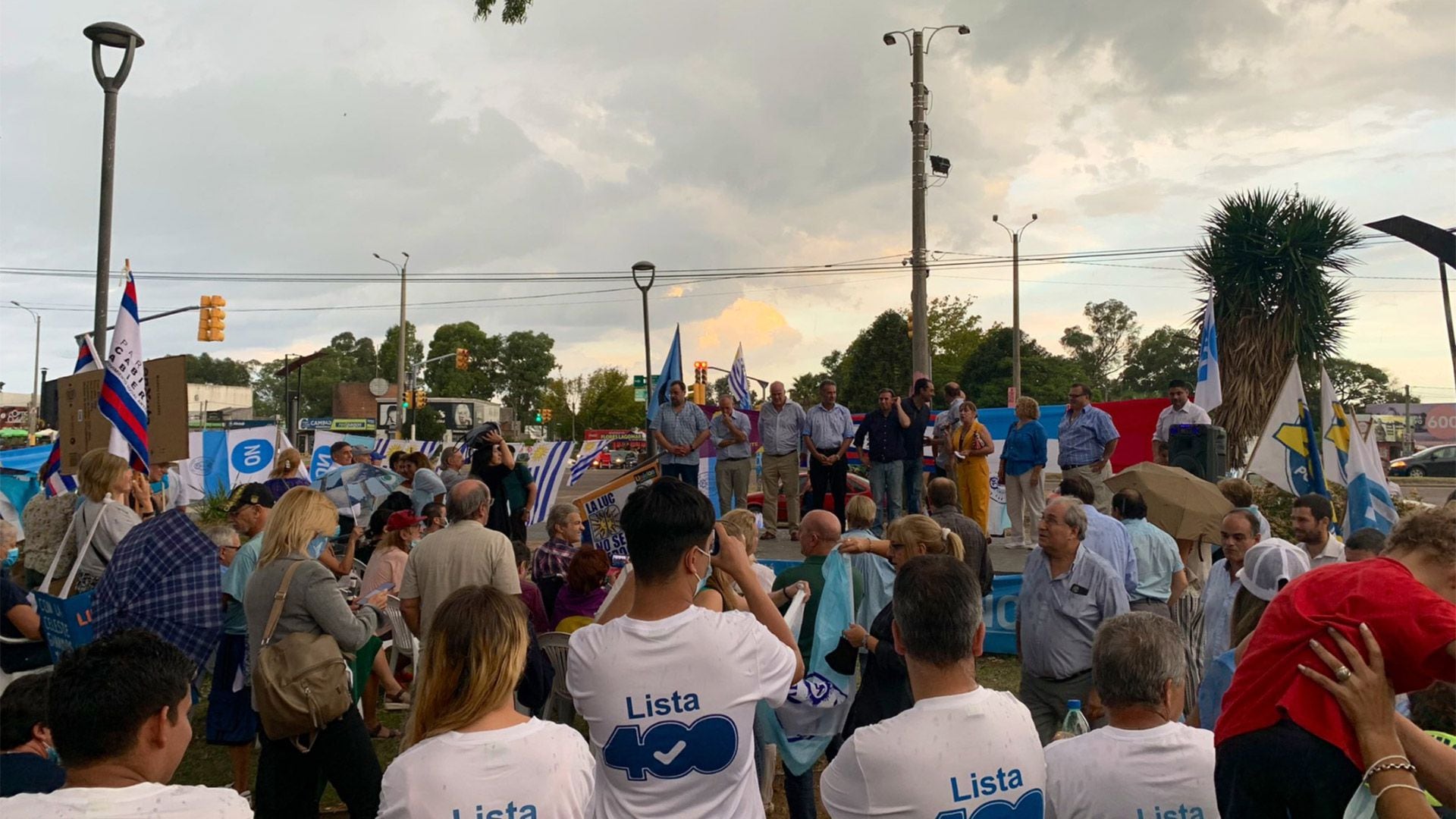
Uruguay is in the final stretch prior to the referendum that will define whether 135 articles of the Urgent Consideration Act are maintained. A few hours after the opening of the electoral circuits, the previous scenario is marked by parity, since the latest polls of several companies coincide in a result with a high percentage of undecided.
The Urgent Consideration Act, popularly known by its acronym “LUC”, is a set of 476 articles that changed several norms. There are articles related to public safety, education, the right to strike, the new unsecured rental regime, the fixing of fuel prices, the easing of controls on money laundering, among several others.
It arrived in Parliament in March 2020, when the country passed the command of President Luis Lacalle Pou. The law, despite having had votes in favor of the Broad Front (group of left parties), passed with a parliamentary majority thanks to the coalition of right-wing parties that was formed during the election campaign. From then on, it became the flagship law of Luis Lacalle Pou's government.
After the discontent on the part of the Broad Front, which was endorsed by militants, leaders and citizens, a collection of signatures began to repeal 135 articles of the LUC in a referendum. On December 8, 2021, the Electoral Court counted the 671,544 signatures needed to enable the referendum, which will be voted on this Sunday.

The Uruguayan Parliament was divided over the vote. On the one hand, there were parties with more right-wing ideologies (the National Party, the Colorado Party, the Independent Party, the Open Cabildo and the People's Party), this so-called “multicolor coalition”. On the other, the group of left-wing parties, the Broad Front.
The vote for “Yes” (pink ballot) is a vote in favor of the elimination of all 135 articles. The vote for “No” (light blue ballot) indicates the desire to keep the law unchanged. The option that gets 50% + 1 of the valid votes will win.
In this situation, the regulations also state that the option to vote blank will be considered as a vote for “No”, or for the celestial ballot.
Beyond the legislative consequences of voting, there are also others that are symbolic. Two years after the start of the government of Luis Lacalle Pou and after fifteen years of presidency of the Broad Front (twice former President Tabaré Vázquez and once former President José Mujica), the results of the referendum will mark the second stretch of the Executive Branch.
In short, what will be voted on is also the citizen's pronouncement, whether or not to support the government.
T he vote for the referendum is secret and compulsory for the 2,684,131 persons who are eligible to vote. Information on electoral circuits can be consulted on the website corteelectoral.gub.uy, where it is divided by department. In addition, a search engine was added where voters will be able to enter their name and obtain the address of the place where they vote automatically.
Those eligible must vote in the circuit that corresponds to them and bear in mind that they must do so within their own department. In this instance, interdepartmental voting is not allowed.
As in every electoral instance at the national level, there are several situations that are prohibited. Among them, there is proselytizing propaganda in written, radio or television media (started last Friday) and the sale of alcoholic beverages, whose closure began at 7:30 p.m. on Saturday and remains until the close of the voting on Sunday.

For today's instance, the Montevideo Electoral Board made a special call for public officials and notaries who are available to join the polling stations during March 27, as there was a loss of staff due to “illness”. “We want to ensure that the circuits open at eight in the morning,” the organization's president, Mary López, told Telemundo.
The vote count is estimated for the end of Sunday's day, but it is noted that it may be delayed towards the beginning of the week.
Those who have registered to collaborate with the Board of Elections will get different benefits: one holiday for Monday, March 28 and five days of leave that will be added to those generated in the year.
Public notaries who do not work in state offices will also have a discount on the payment of taxes of the General Tax Directorate (DGI) of 12 resettable units (UR). The amount would be equivalent to about 17,136 Uruguayan pesos, almost 400 dollars.
The Minister of the Electoral Court, José Garchitorena, reported that the cost of this referendum will be about 70 million pesos (more than one and a half million dollars), according to Montevideo Portal. What makes the situation more expensive, it seems, is the software used for tablets on the circuits.
Those who do not vote in the referendum or justify not doing so will be liable to pay a fine that is equivalent to a Resettable Unit, 1,428.01 Uruguayan pesos (33 US dollars).
This figure will be doubled when the person who has not voted is a public official or has the status of professional with a degree issued by the University of the Republic.
The latest polls
The consultancy firm Equipos published its latest survey on March 9, where it indicated that 35% of Uruguayans would vote to keep the 135 articles of the LUC with the celestial ballot. A 34%, on the other hand, would vote to repeal them with the pink ballot. At the same time, there were 28% undecided, 1% who would vote blank and 2% would vote annulled.
On March 22, pollster Cifra said that according to her latest poll, “No” would get 45% of the votes, while “Yes” would get 41% of the votes. They also reported that 10% were undecided, 2% would vote annulled and 2% blank.
Finally, Opción delivered a poll on March 23 where it suggested that 38% of citizens would vote for “No”, but 35% for “Yes”. There were 22% undecided, 1% who would vote blank, 2% who will not go to the polls and another 2% who will vote cancelled.
KEEP READING:
Últimas Noticias
Debanhi Escobar: they secured the motel where she was found lifeless in a cistern
Members of the Specialized Prosecutor's Office in Nuevo León secured the Nueva Castilla Motel as part of the investigations into the case

The oldest person in the world died at the age of 119
Kane Tanaka lived in Japan. She was born six months earlier than George Orwell, the same year that the Wright brothers first flew, and Marie Curie became the first woman to win a Nobel Prize

Macabre find in CDMX: they left a body bagged and tied in a taxi
The body was left in the back seats of the car. It was covered with black bags and tied with industrial tape
The eagles of America will face Manchester City in a duel of legends. Here are the details
The top Mexican football champion will play a match with Pep Guardiola's squad in the Lone Star Cup

Why is it good to bring dogs out to know the world when they are puppies
A so-called protection against the spread of diseases threatens the integral development of dogs




